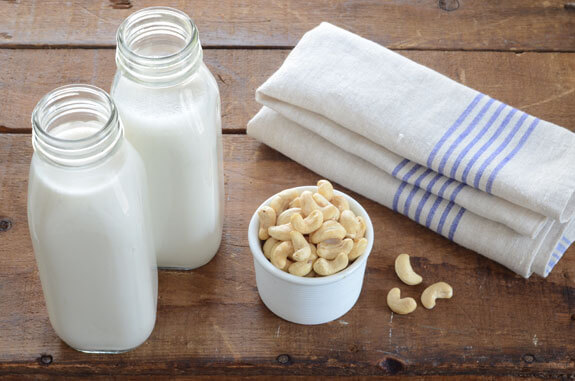CASHEW KERNELS are rich in Phosphorous, Magnesium, Potassium, Copper and Zinc. Cashews have recently been used to make dairy alternatives, such as cashew milk, cashew-based cheese and cashew-based cream sauces and sour cream.
Cashew Kernels are used for controlling diabetes and also protects human nervous system.
Cashew kernels are obtained through processing (roasting/ steaming, shelling and peeling) the cashew nuts.

According to the US Department of Agriculture (USDA) National Nutrient Database, 1 ounce of raw cashews (28.35 grams) contains:
Cashews also contain vitamins C and B, including 7 micrograms (mcg) of DFE folate.
One Ounce serving of cashews is about 18 whole cashews. Cashews are high in monounsaturated and polyunsaturated fats and a good source of protein.
Consuming a high proportion of plant-based foods appears to reduce the risk of many lifestyle-related health conditions.
The monounsaturated and polyunsaturated fatty acids found in cashews can help decrease LDL cholesterol and triglyceride levels. This reduces the risk of cardiovascular disease, stroke, and heart attack.
A study published in the British Journal of Nutrition showed that the risk of coronary heart disease may be 37 percent lower in people who consume nuts more than four times per week compared with people who never or seldom consume nuts.

The U.S. Food and Drug Administration (FDA) have approved a health claim for food labels that “eating 1.5 oz per day of most nuts as part of a diet low in saturated fat and cholesterol may reduce the risk of heart disease.”
Cashews are a good source of magnesium, which plays an important role in over 300 enzymatic reactions within the body.
These include the metabolism of food and synthesis of fatty acids and proteins.
Magnesium is also involved in muscle relaxation and neuromuscular transmission and activity.
Magnesium deficiency, prevalent in older populations, is linked to insulin resistance, metabolic syndrome, coronary heart disease and osteoporosis.
Several studies have found that a high intake of calcium without sufficient magnesium could increase the risk of arterial calcification and cardiovascular disease, as well as kidney stones.
People with the highest intake of magnesium were found in the Framingham Heart Study to have a 58-percent lower chance of having coronary artery calcification and a 34-percent lower chance of abdominal artery calcification.
Limited data suggest that routine nut consumption is associated with a higher expenditure of energy while resting. This could have implications for weight management.
In addition, in trials that compare weight loss between food regimens that include or exclude nuts, regimes that include nut consumption in moderation were linked to greater weight loss.
A study published in the American Journal of Clinical Nutrition in 2004 found that women who reported rarely eating nuts had a greater incidence of weight gain over an 8-year period than women who consumed nuts two or more times a week.
The researchers concluded that eating nuts does not lead to a weight gain, and that it may help maintain a healthy weight.
A review of studies published in 2017 concluded that nuts can help maintain a healthy weight. They may do this by helping a person feel full and contributing to thermogenesis, which is the production of heat in the body. This can help boost the metabolism.
According to a study in the American Journal of Clinical Nutrition, frequent nut consumption is associated with a reduced risk of needing surgery to remove the gallbladder.
In over a million people documented over a time span of 20 years, women who consumed more than 5 ounces of nuts a week had a significantly lower risk of cholecystectomy than women who ate less than 1 ounce of nuts each week.
Cashews are one of the few food sources that are high in copper. One ounce of cashews contains 622 micrograms of copper. For adults aged 19 years and over, the recommended intake for copper each day is 900 micrograms.
Severe copper deficiency is associated with lower bone mineral density and an increased risk of osteoporosis. More research is needed, however, on the effects of marginal copper deficiency and the potential benefits of copper supplementation for prevention and management of osteoporosis.
Copper also plays an important role in the maintenance of collagen and elastin, major structural components of our bodies. Without sufficient copper, the body cannot replace damaged connective tissue or the collagen that makes up the scaffolding for bone. This can lead to a range of problems, including joint dysfunction as bodily tissues begin to break down.
The magnesium in cashews is also important for bone formation as it helps with the assimilation of calcium into the bone. Manganese, another mineral in cashews, has been shown to prevent osteoporosis in combination with calcium and copper.
Cashews contain fat, but these are mostly unsaturated fats, which are healthful in moderate quantities.
Cashew kernels are often sold as “raw” in stores, but these have been steamed. This removes the toxins. These cashews are healthful.
Depending on the brand, salted and roasted cashews can contain high levels of salt and fat, which may not be healthful. It is best to check the label first and consume these nuts in small quantities.
People who have a nut allergy should avoid cashews, as they contain potent allergens that can lead to reactions, including life-threatening anaphylactic shock.
Overall, it is better to eat a diet with variety than to concentrate on individual foods as the key to good health.